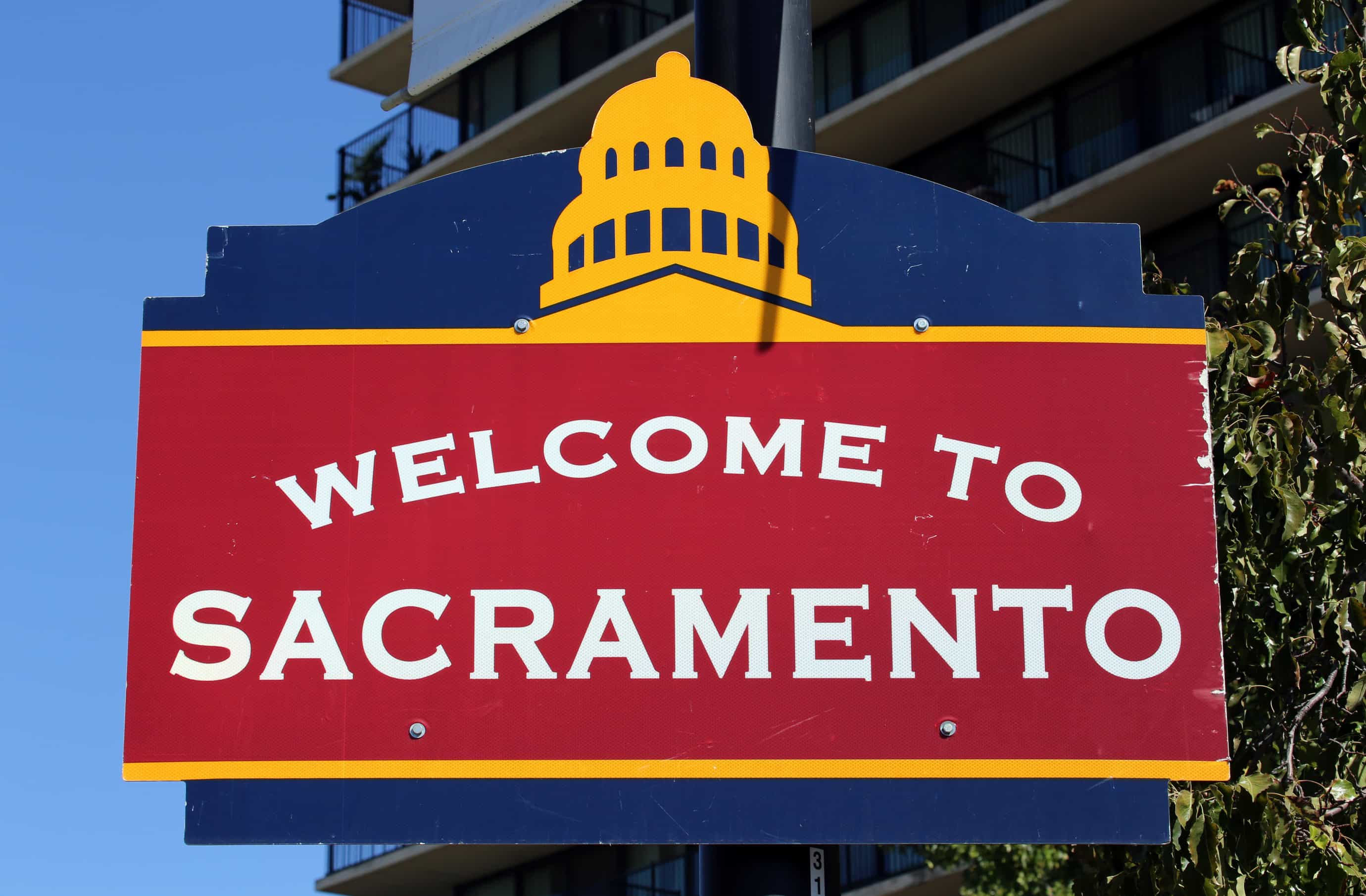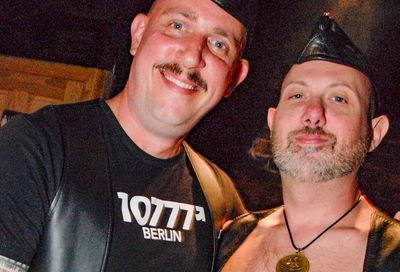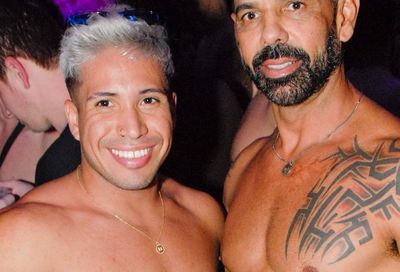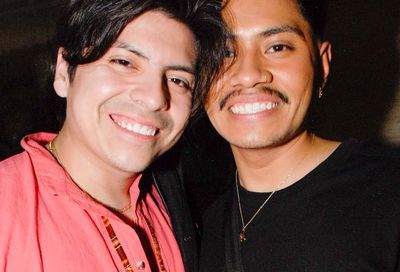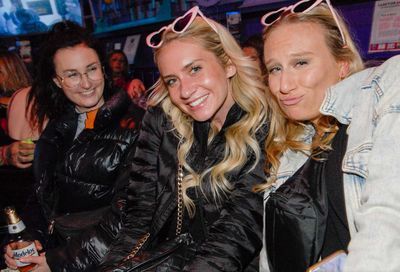Anti-Crime Encore
New group's second meeting draws crowd, cops, Council
A recently launched, grassroots effort to respond to violent attacks against members of the GLBT community made notable progress Monday evening, Sept. 22. Two weeks after the group held its first meeting in the conference room at The Center, the metro area’s GLBT community center, the second meeting was a few blocks away from the first in the literal sense, but a world away in the figurative.
Whereas the first meeting pulled together a loose grouping of acquaintances and activists around a single table, roughly 50 people filled a theater in the Dewey & LeBoeuf law offices. That night, the grassroots reached to the halls of power, with three D.C. Council members in attendance, Christopher Dyer of Mayor Adrian Fenty’s Office of GLBT Affairs, and three officers of the Metropolitan Police Department.
Pete Perry, a board member of the Washington Peace Center and one of the first to call for the initial meeting, says he had mixed feeling about the group’s high-profile change of pace.
”The MPD brass and politicians need to know we’re not going to go away,” says Perry. ”It was useful to hear what they had to say, but we weren’t pacified.”
While Perry’s tone is not surprising for someone who has often worked against the establishment — having been arrested 11 times for activism related to opposing war and torture — Chris Farris, also key to the initial meeting, took a more laissez-faire approach to the sudden attention.
”It wasn’t, from my perspective, a negative,” says Farris, who penned the ”Where is our anger?” essay on the local The New Gay blog, reacting to the brutal, homophobic beating of his friend, Todd Metrokin. ”It just changed the direction of the meeting. I wasn’t in any way upset the meeting ended up that way.”
Though the July attack against Metrokin and two others, along with Farris’ subsequent essay, may have been the catalyst for this new group’s first meeting, a recent fatality likely increased the group’s profile ahead of Sept. 22. On Sept. 17, Tony Randolph Hunter, a gay man, died of injuries sustained Sept. 7 in D.C.’s Shaw neighborhood. That attack was initially suspected to be a hate crime, though the MPD now says there is no evidence to maintain that suspicion.
”The anxiety of the community, the level of concern, seriously spiked,” says Farris, referring to Hunter’s death. ”I think people were looking for an outlet and wanted to express their concern.”
Organizers say that while they initially thought the second meeting would be reserved for ironing out some of the nuts and bolts of the nascent group, such as its name — though it seems to be leaning toward crafting itself as a reincarnation of Gays and Lesbians Opposing Violence (GLOV), a local group active through the 1990s — that may have to wait for meeting No. 3.
Still, there was ample ground to cover and progress was made, with the meeting running nearly half an hour longer than its scheduled time.
During the discourse, audience members raised myriad concerns, from lax sentencing for juveniles, to worries of combating hate crimes with more severe punishments, to greater GLBT visibility, for starters. Councilmember Phil Mendelson (D-At large) offered a few words of support; Councilmember Jack Evans (D-Ward 2) submitted paperwork from the original GLOV, as supplied by his staff member, Jeff Coudriet, a member of that original effort; and Councilmember David Catania (I-At large) dug at one possible root of the problem: D.C. schools.
”Officers alone are not the answer,” Catania, chair of the City Council’s Committee on Health, told the group. Instead, he pointed to an uphill battle he’s waged to increase the number of nurses and mental-health professionals in the school system, where there is a chance that they could identify aggression-related issues in youth before they’re manifested as street attacks.
MPD’s Assistant Chief Diane Groomes also offered some practical advice, such as not handing a wallet or phone to an assailant, but tossing it away from you to buy some time to flee; and Inspector Edward Delgado advised that corners of the Latino community perceived to be undocumented and therefore less likely to seek help from police, and to carry large amounts of cash rather than use banks, may be victimized more often than the GLBT community — if not as viciously.
And Acting Lt. Brett Parson, who oversees all the MPD’s special liaison units, including the Gay and Lesbian Liaison Unit, dismissed any hesitance to call the Police. Even if it’s just being called ”faggot” at the grocery store, that necessitates a call to 911 to report the insult as an ”incident,” if not a hate crime. Parson assures: ”We want to know.”
To learn more about this group, operating as GLOV, visit www.glovedc.org.
Support Metro Weekly’s Journalism
These are challenging times for news organizations. And yet it’s crucial we stay active and provide vital resources and information to both our local readers and the world. So won’t you please take a moment and consider supporting Metro Weekly with a membership? For as little as $5 a month, you can help ensure Metro Weekly magazine and MetroWeekly.com remain free, viable resources as we provide the best, most diverse, culturally-resonant LGBTQ coverage in both the D.C. region and around the world. Memberships come with exclusive perks and discounts, your own personal digital delivery of each week’s magazine (and an archive), access to our Member's Lounge when it launches this fall, and exclusive members-only items like Metro Weekly Membership Mugs and Tote Bags! Check out all our membership levels here and please join us today!



